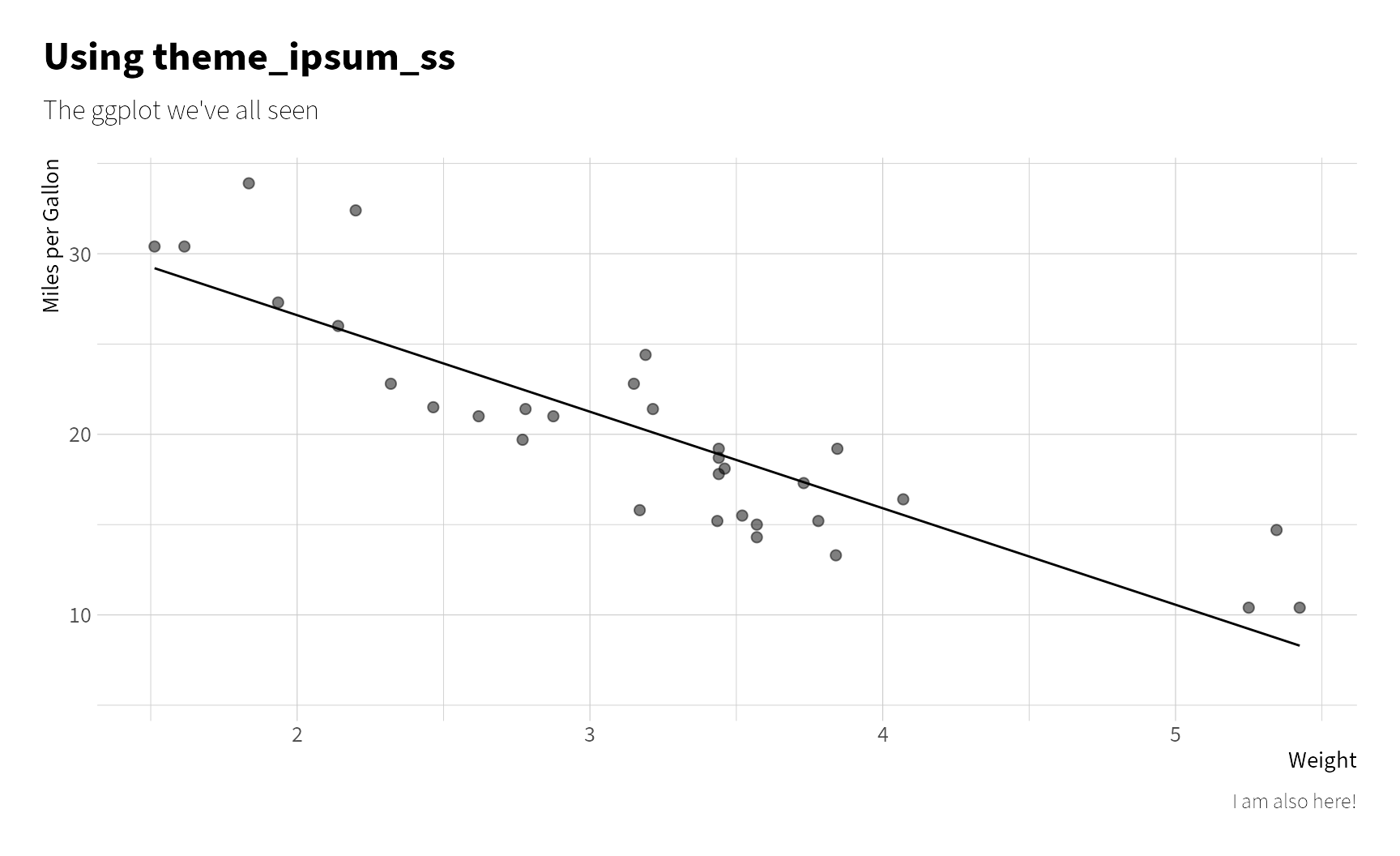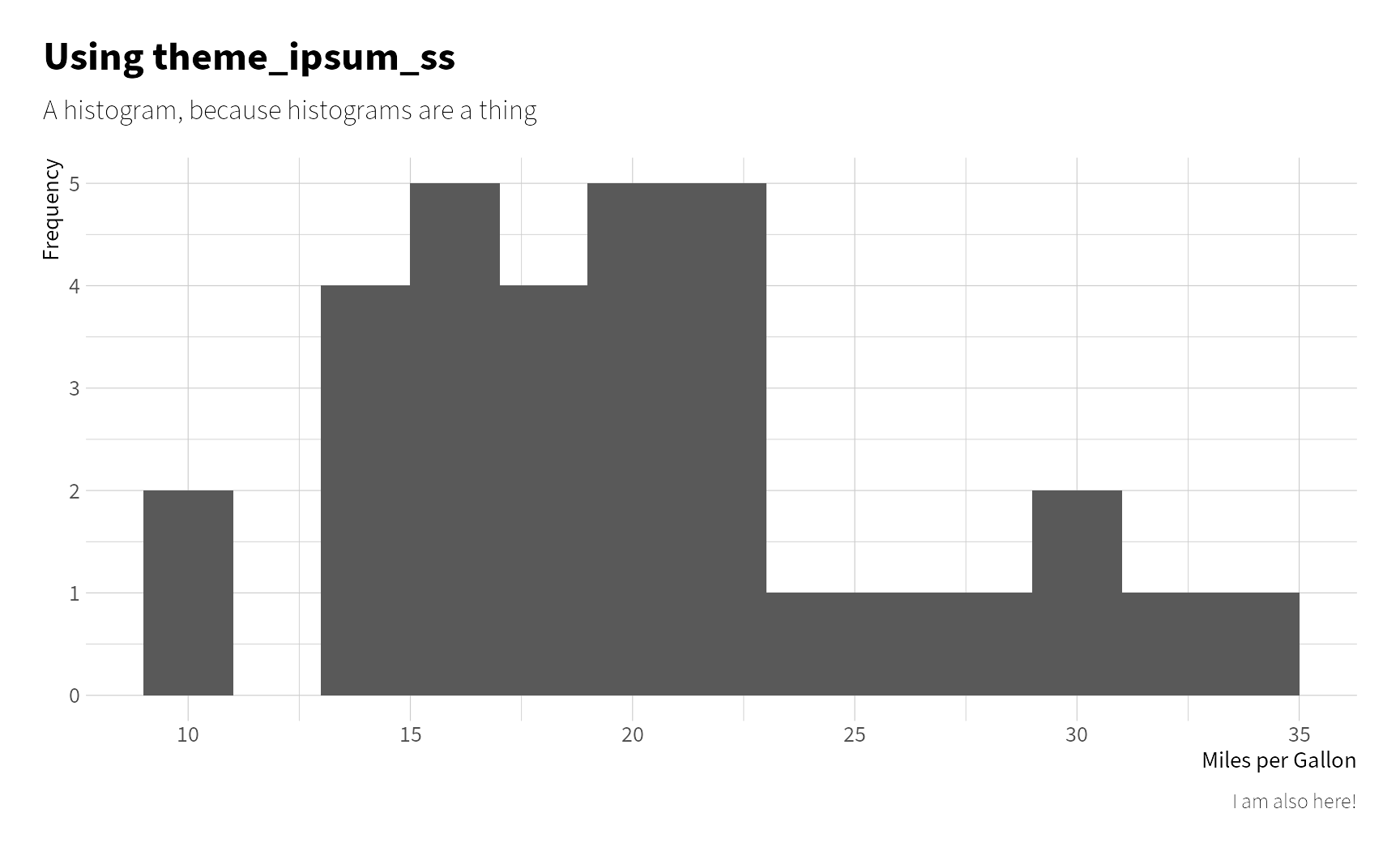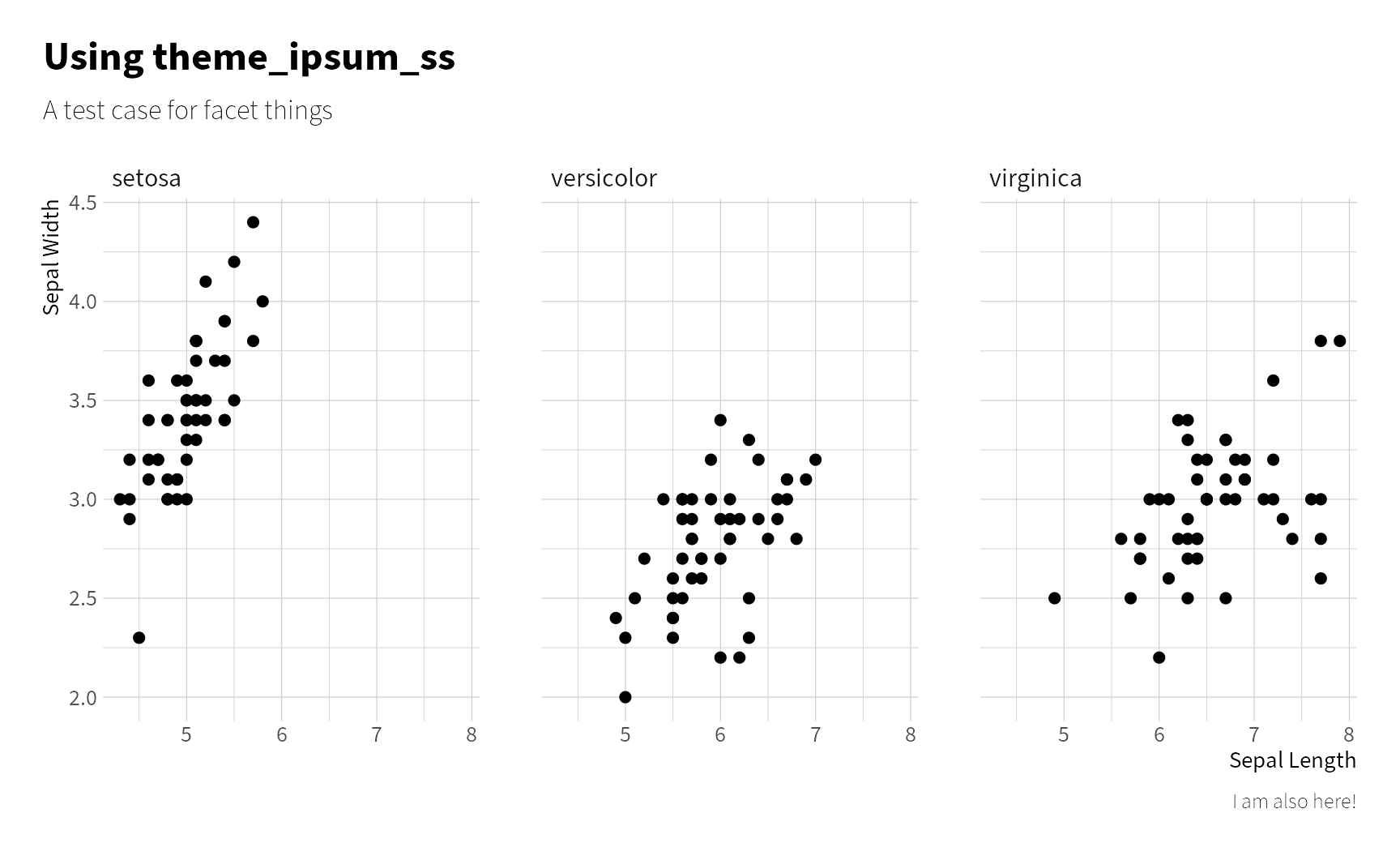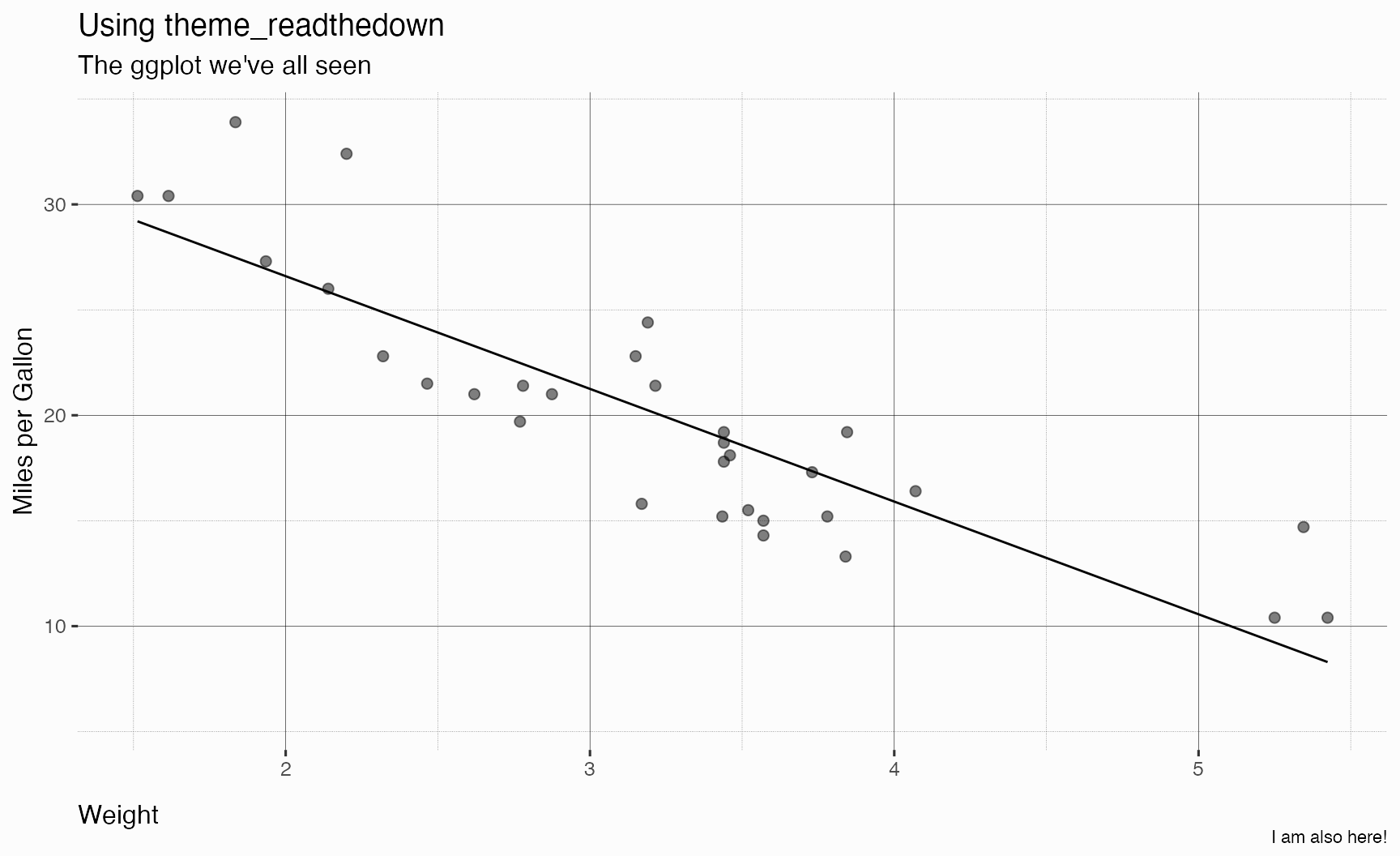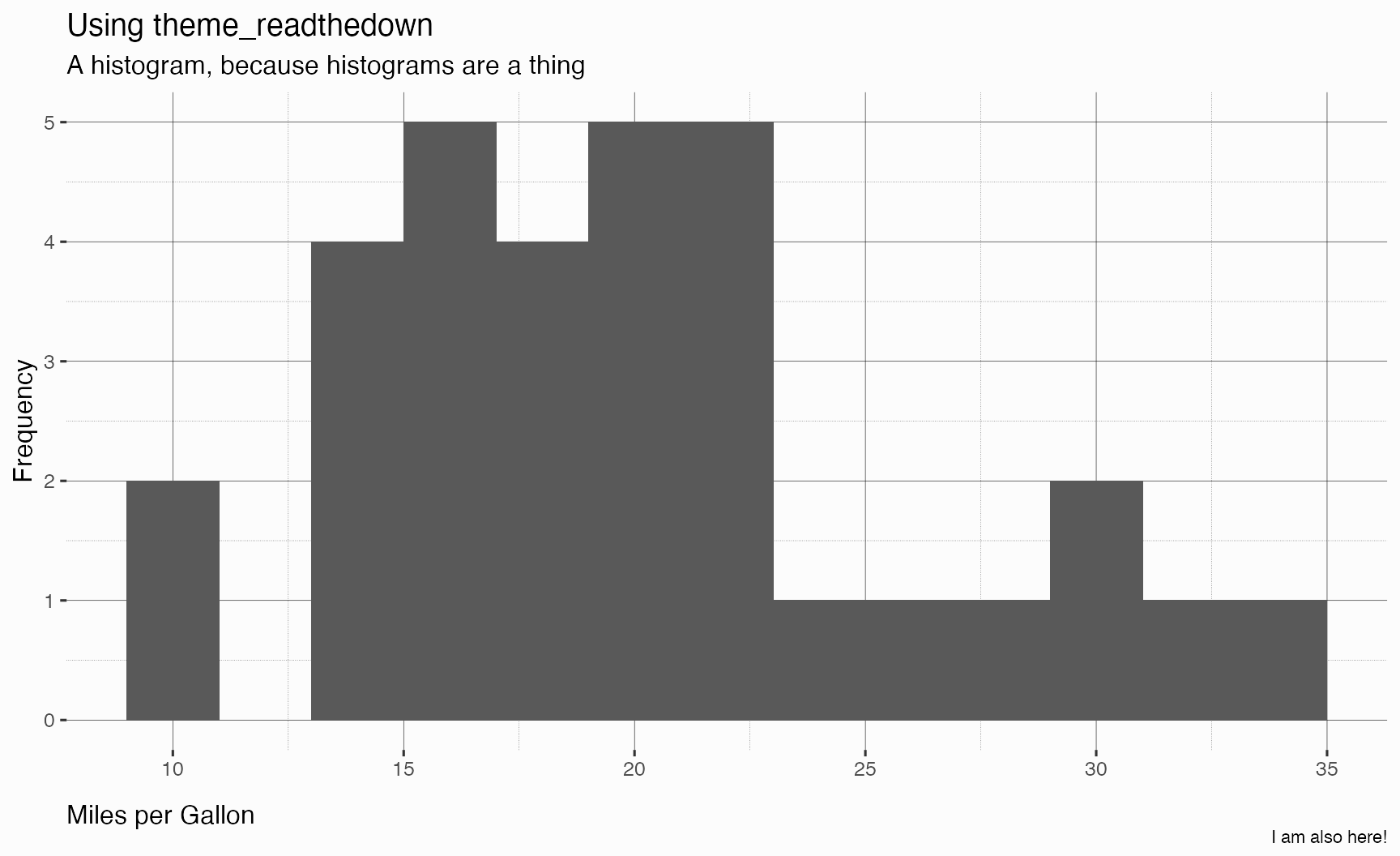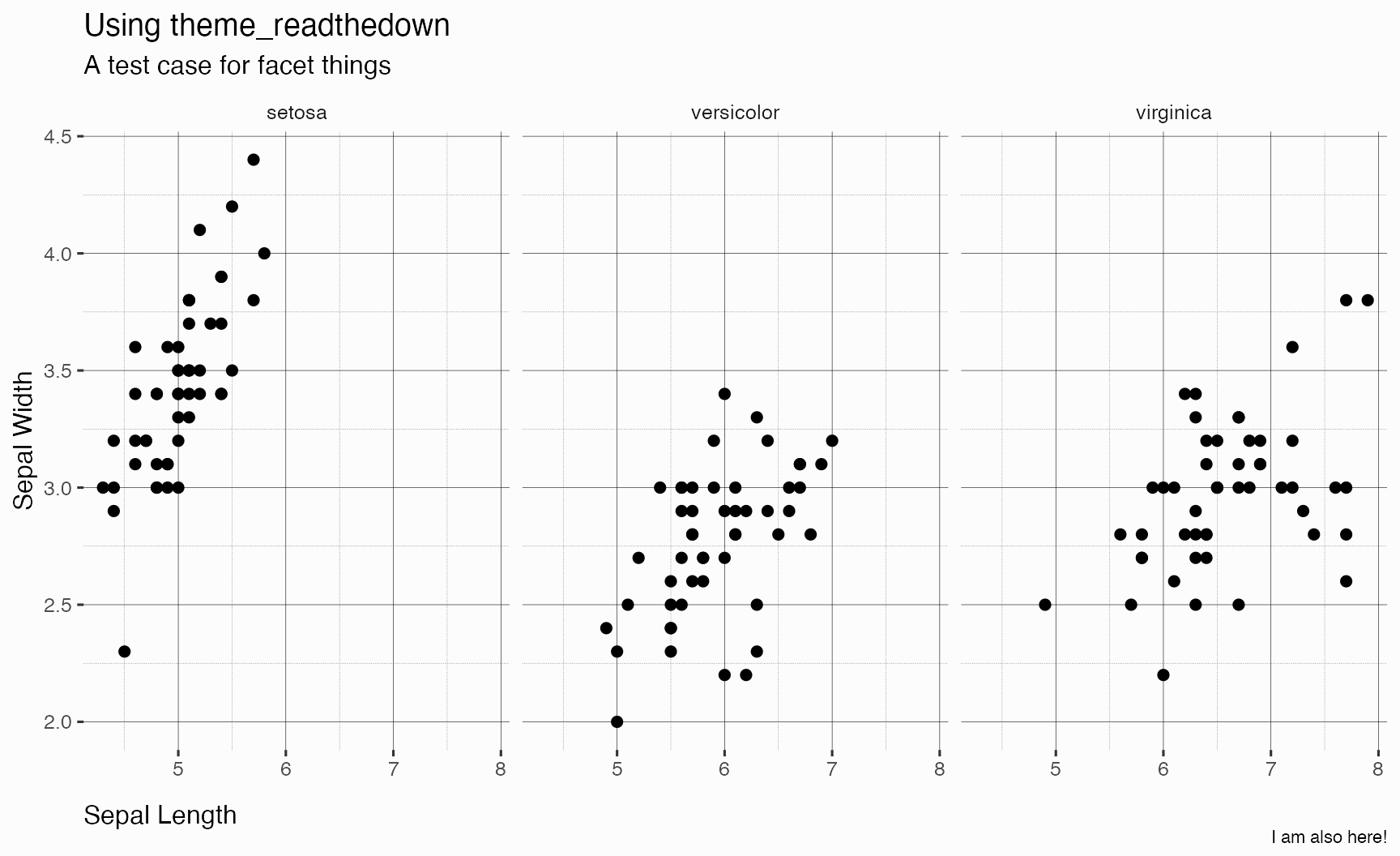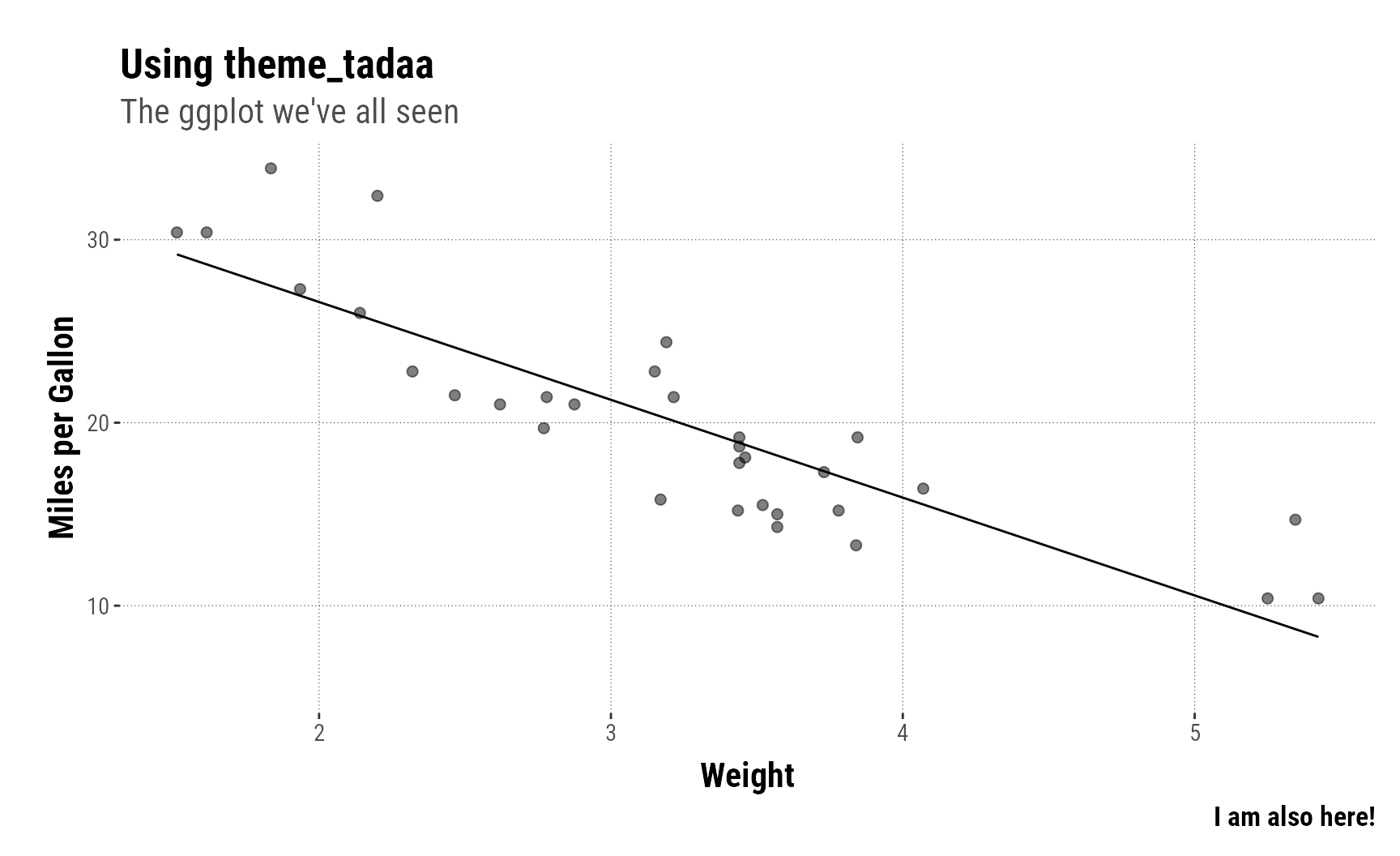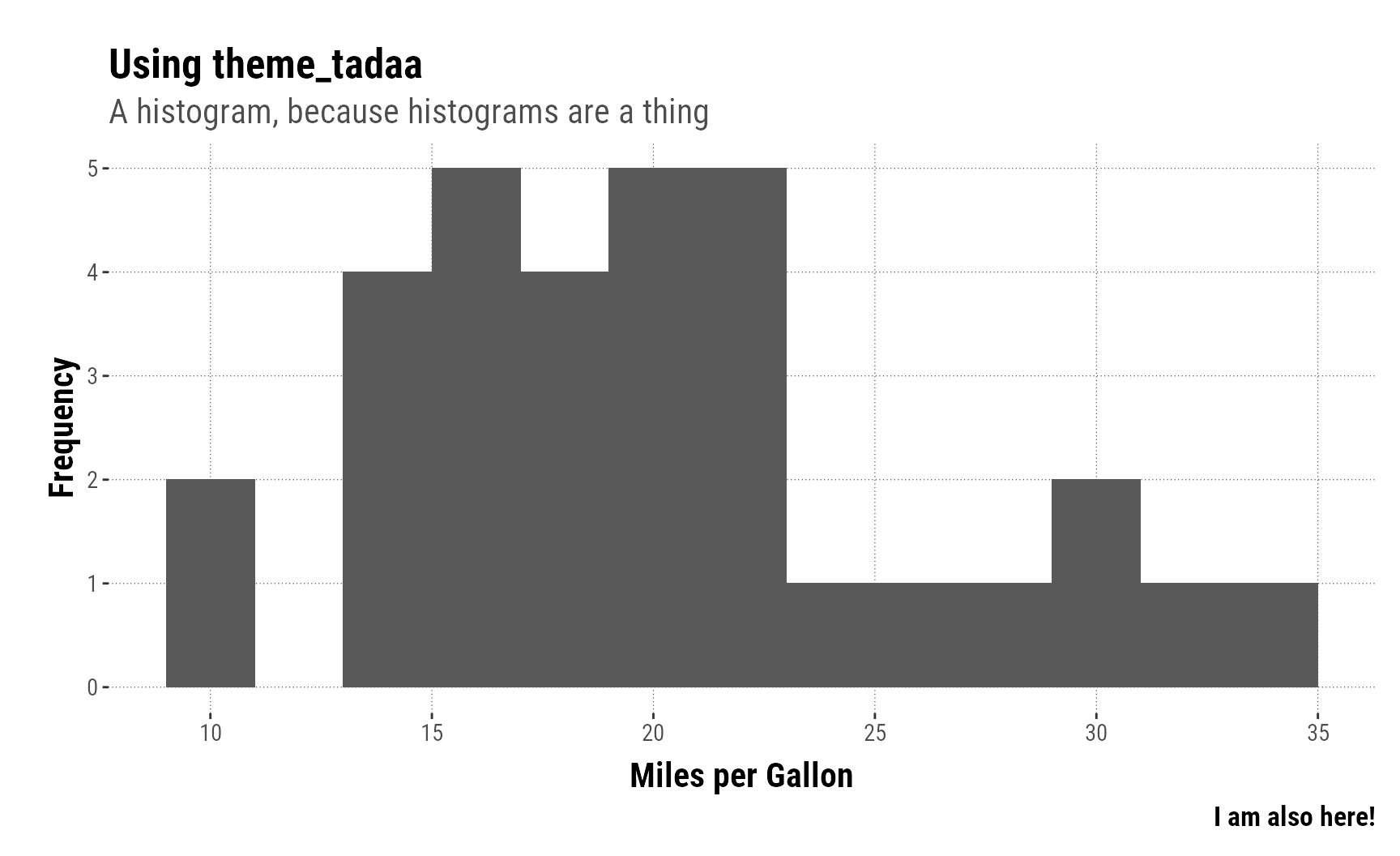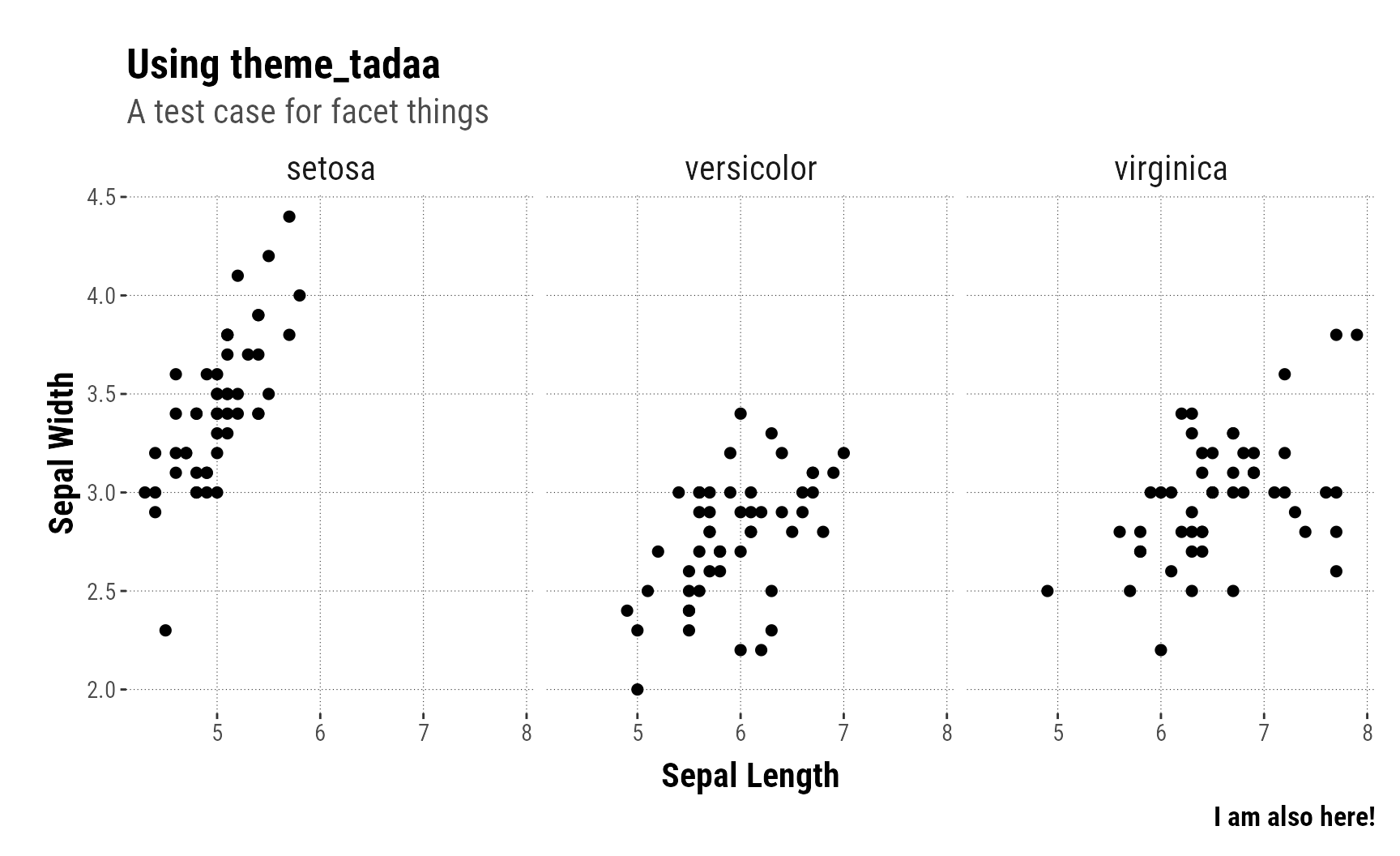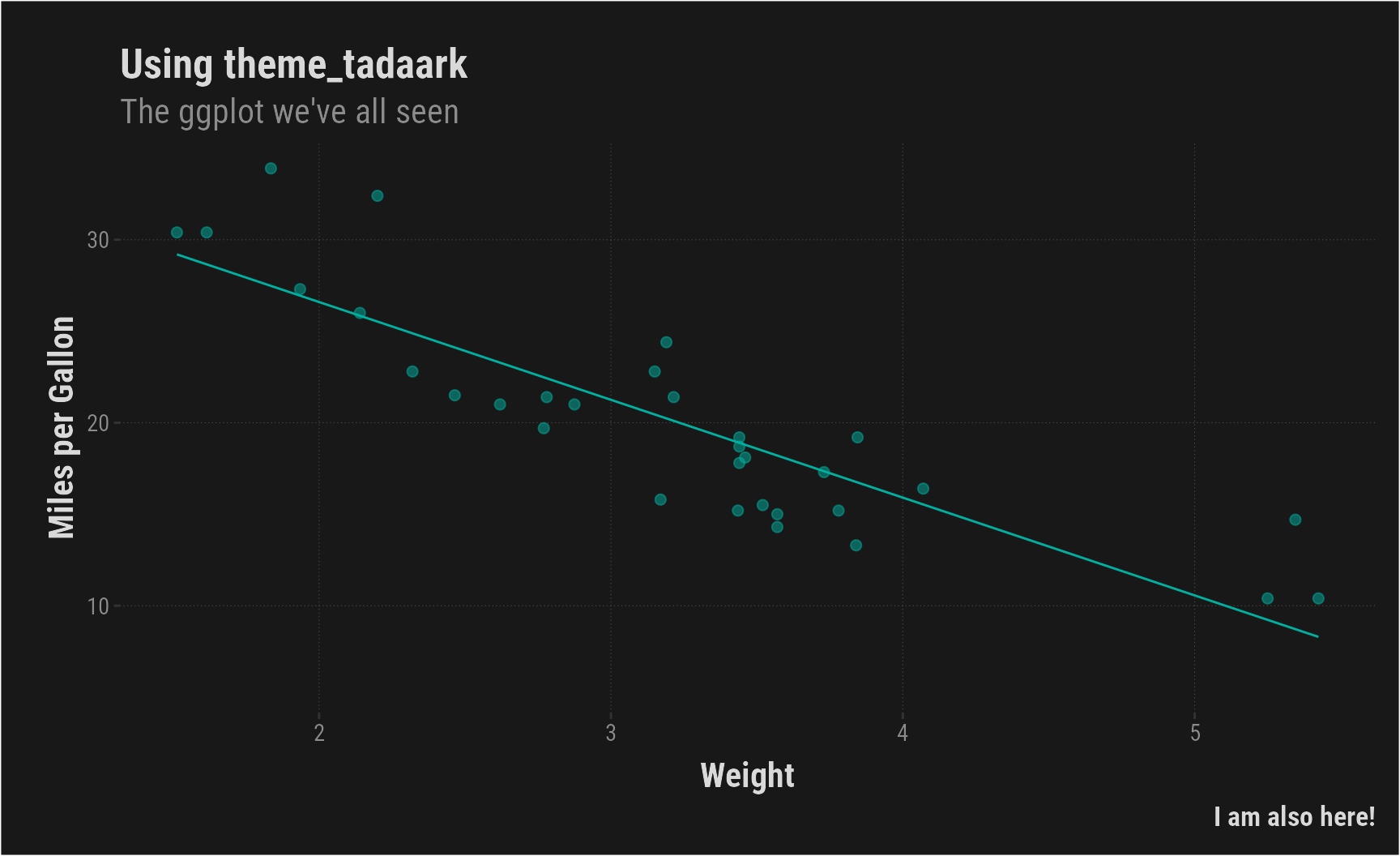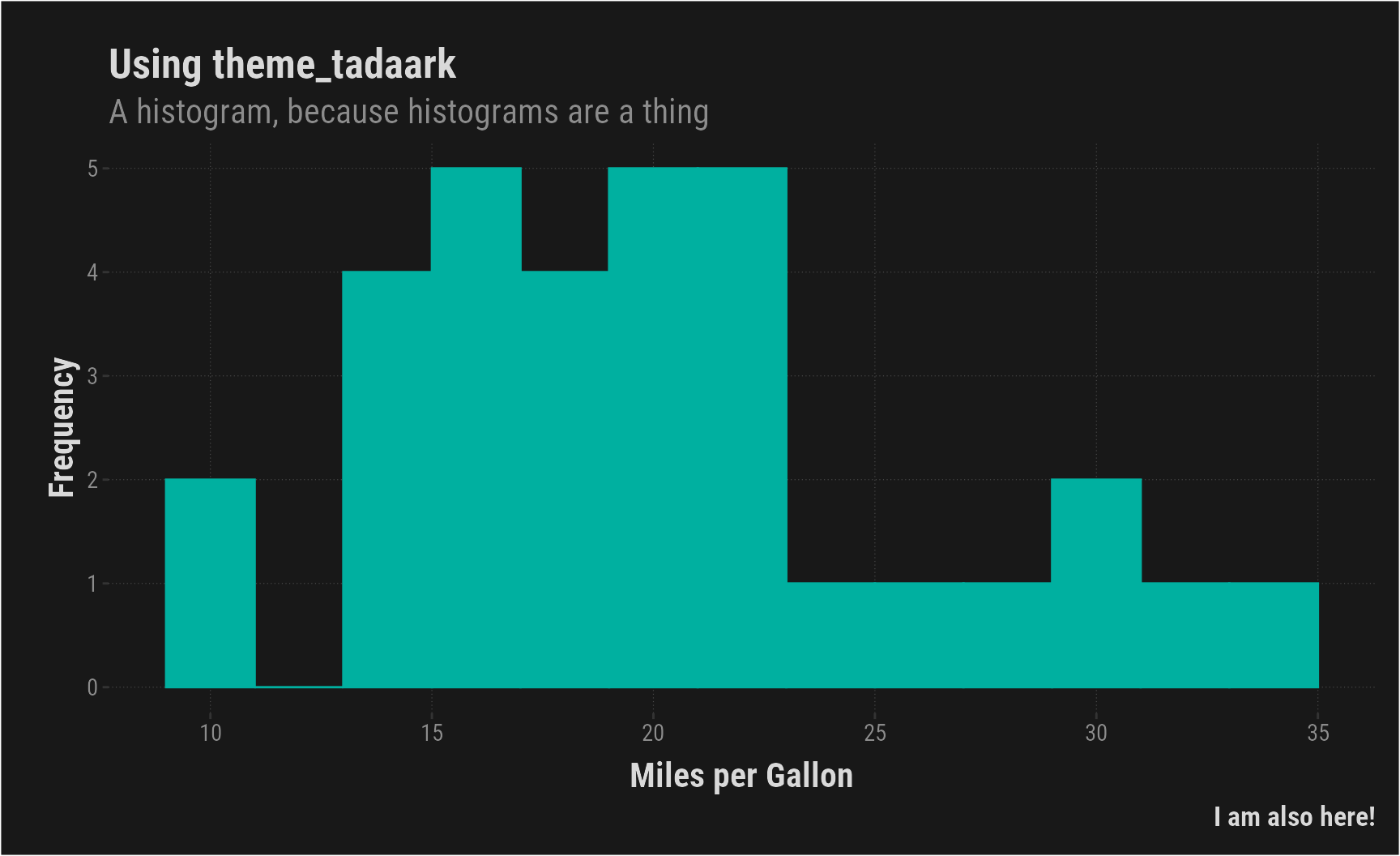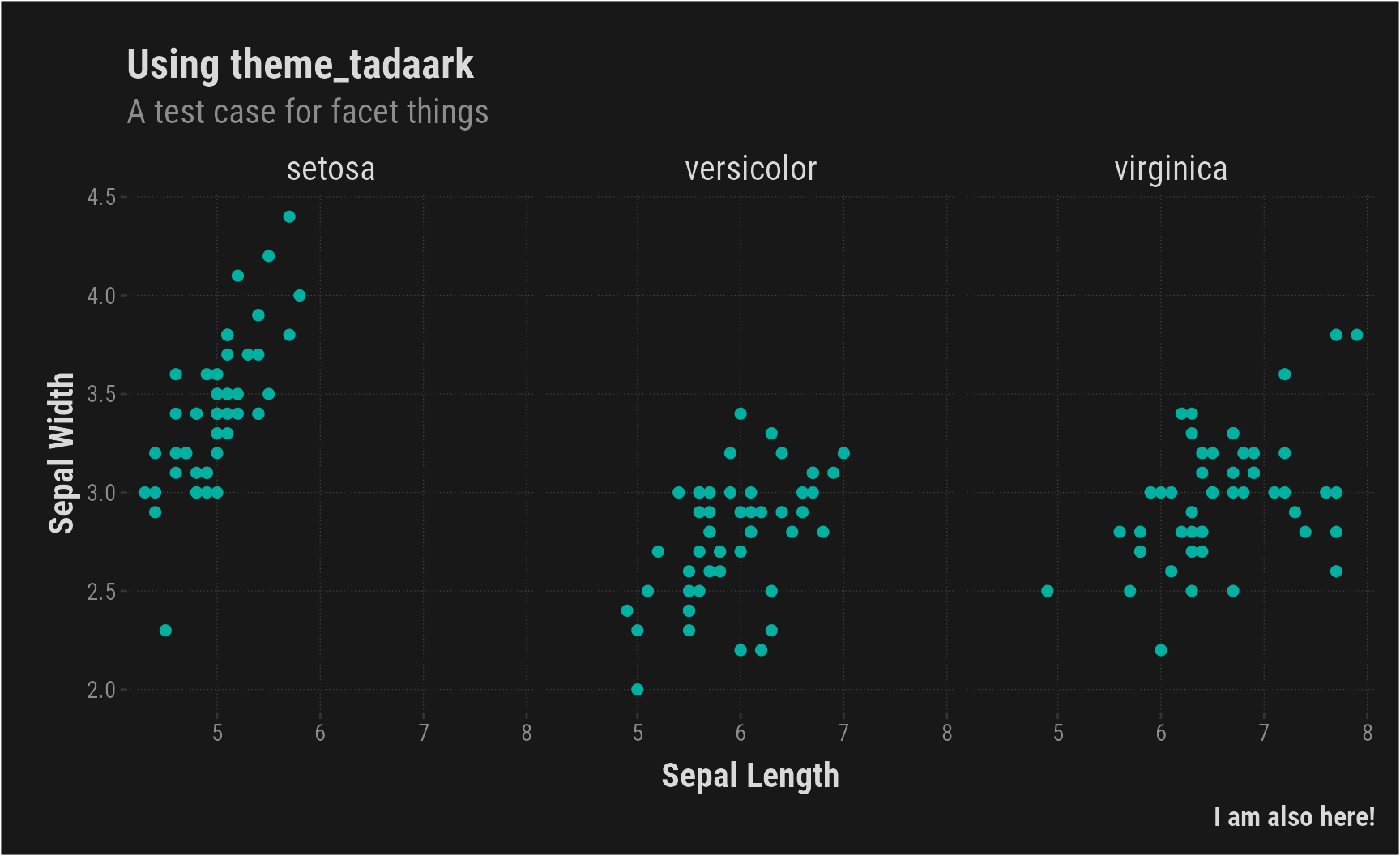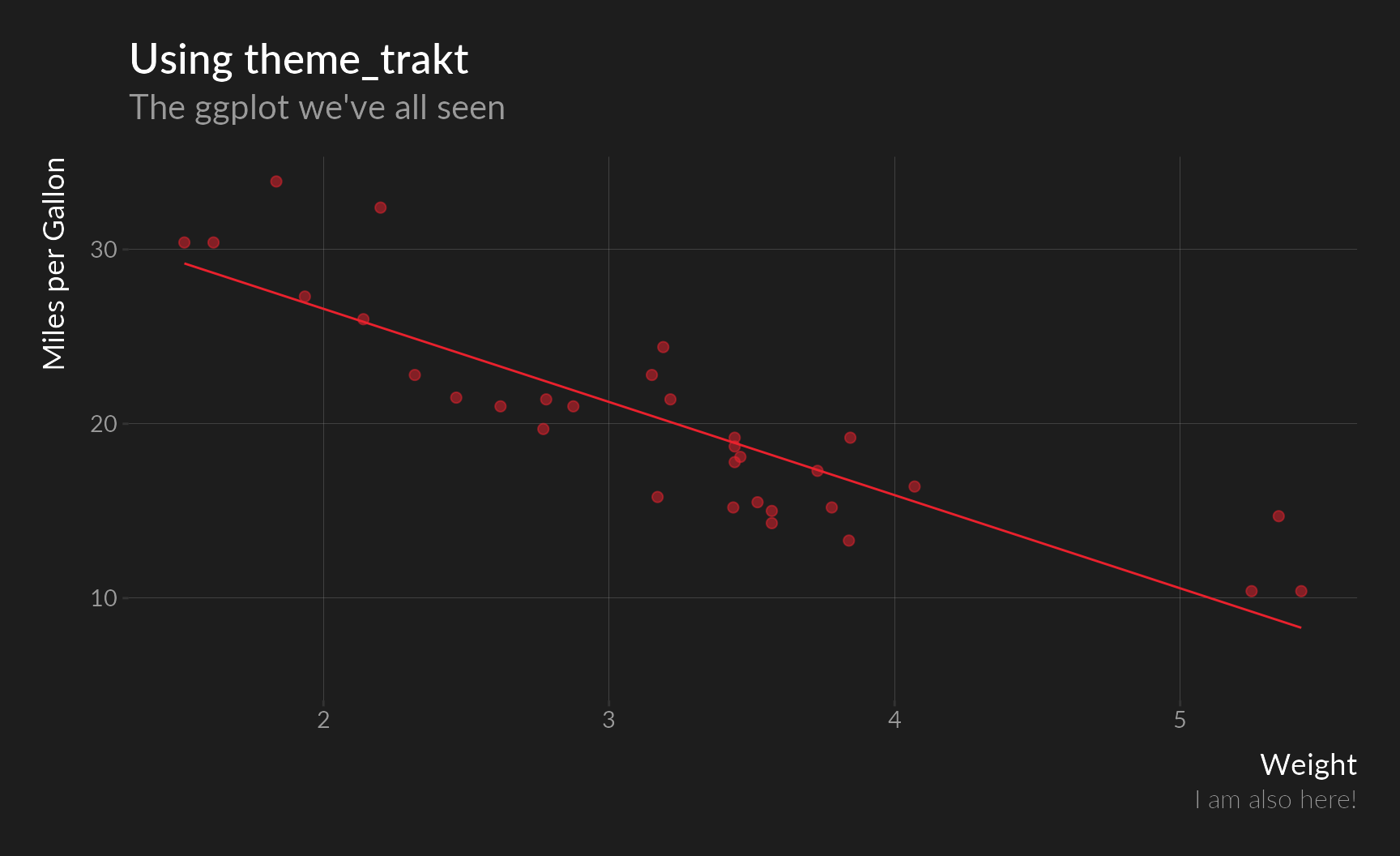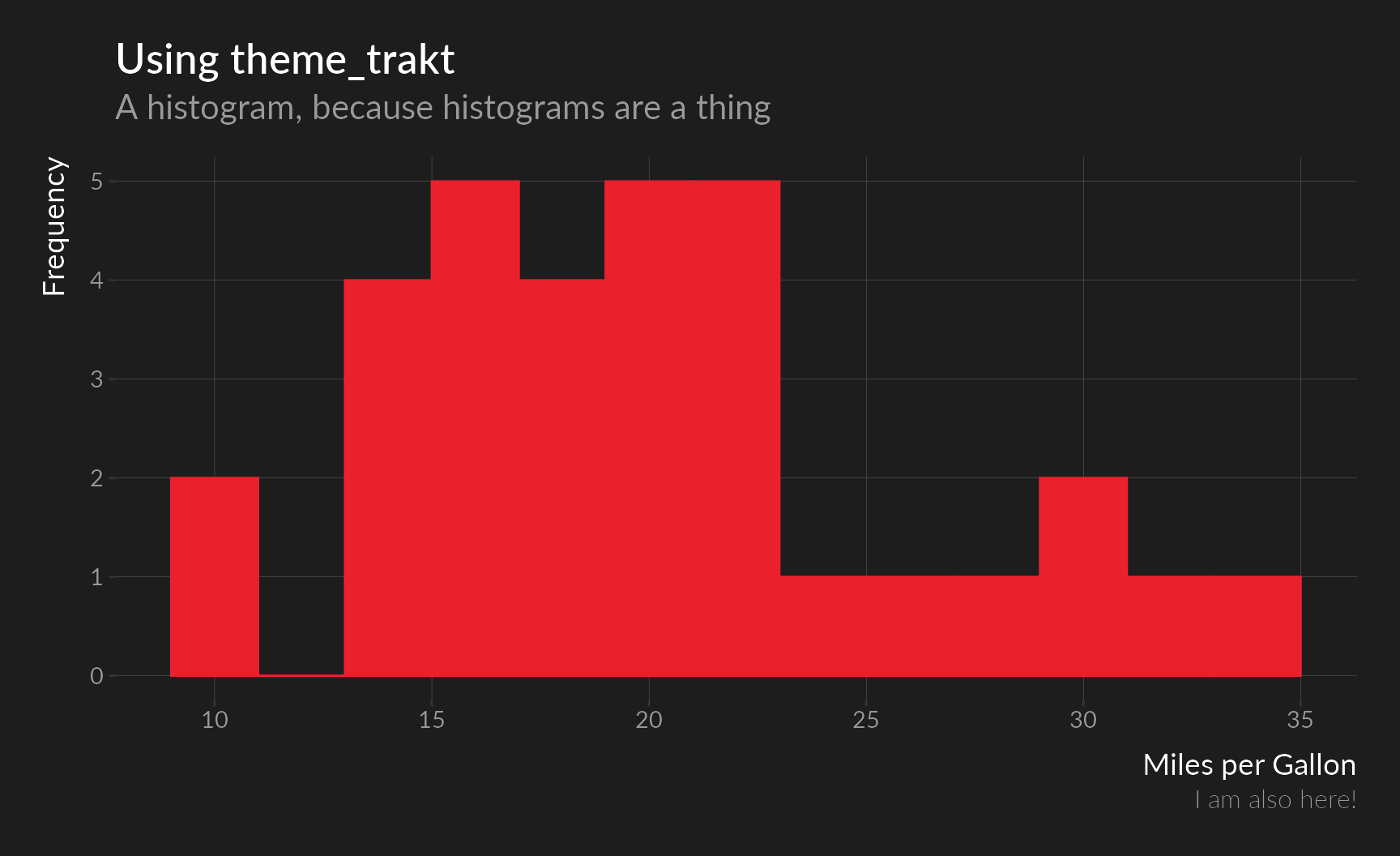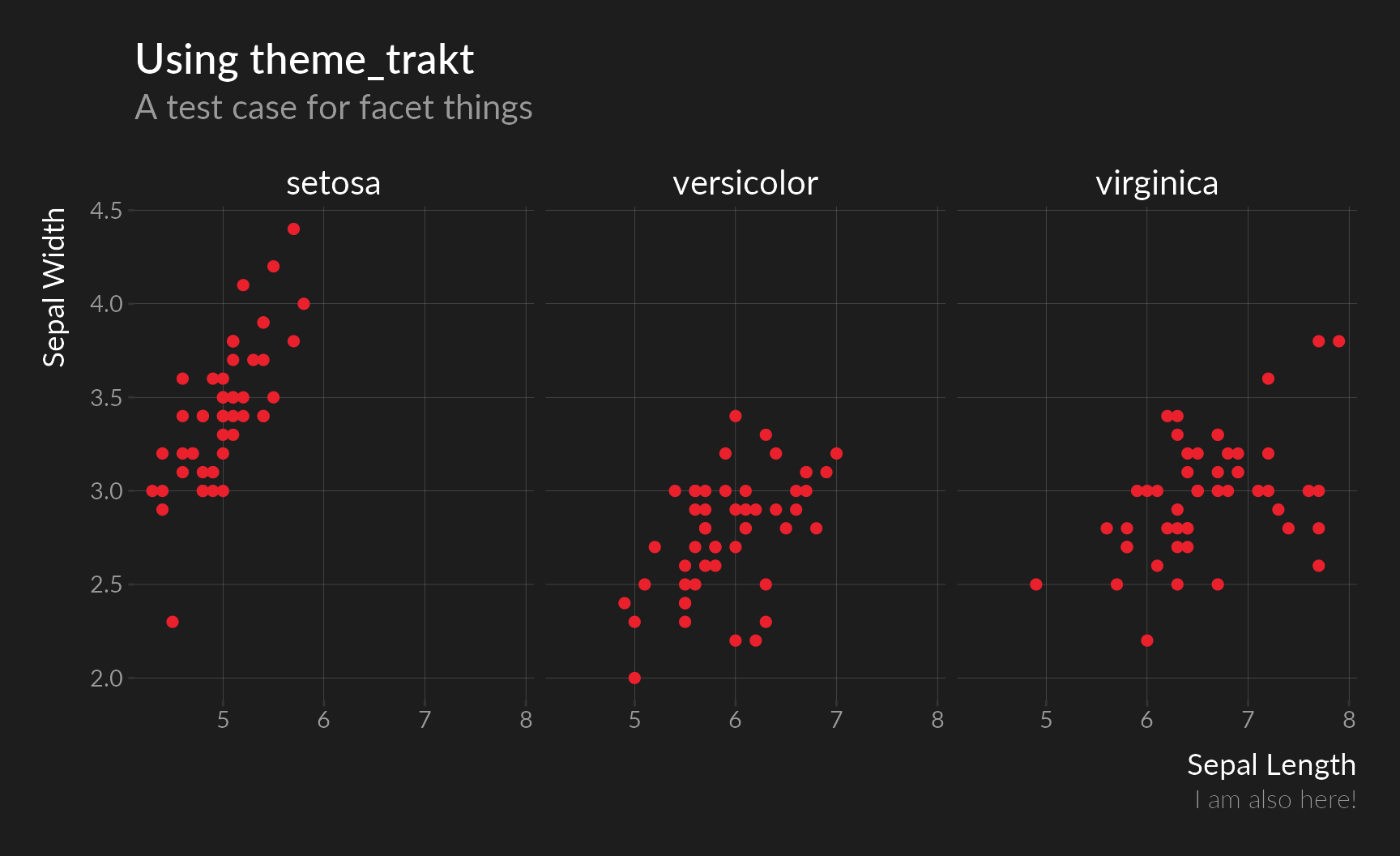library(ggplot2)
library(tadaathemes)
# List all themes in package
pkg_themes <- getNamespaceExports("tadaathemes")
pkg_themes <- sort(pkg_themes[grepl("^theme\\_", pkg_themes)])
# Test plots
p_scatter <- ggplot(mtcars, aes(x = wt, y = mpg)) +
geom_line(stat = "smooth", method = lm, formula = y ~ x) +
geom_point(size = 2, alpha = .5) +
labs(
subtitle = "The ggplot we've all seen",
x = "Weight", y = "Miles per Gallon",
color = "Gears", caption = "I am also here!"
)
p_facets <- ggplot(iris, aes(x = Sepal.Length, y = Sepal.Width)) +
facet_wrap(~Species) +
geom_point(size = 2) +
labs(
subtitle = "A test case for facet things",
x = "Sepal Length", y = "Sepal Width",
caption = "I am also here!"
)
p_histo <- ggplot(mtcars, aes(x = mpg)) +
geom_histogram(binwidth = 2) +
labs(
subtitle = "A histogram, because histograms are a thing",
x = "Miles per Gallon", y = "Frequency",
caption = "I am also here!"
)
# Make a plot with a theme provided as character argument
plot_with_theme <- function(p, theme = "theme_minimal") {
this_theme <- eval(parse(text = theme))
p +
labs(title = paste("Using", theme)) +
this_theme()
}
Themes
for (theme in pkg_themes) {
header <- paste("\n## ", theme, "\n\n")
cat(header)
print(plot_with_theme(p_scatter, theme = theme))
cat("\n")
print(plot_with_theme(p_histo, theme = theme))
cat("\n")
print(plot_with_theme(p_facets, theme = theme))
cat("\n")
}
